Enter a New Era of Engagement and Satisfaction
Table Of Contents
- 1 Introduction
- 2 How AI is Taking Center Stage in Customer Service
- 3 AI-Powered Tools Leading the Way in Customer Service
- 4 The Benefits of AI in Customer Service
- 5 FAQ’s
- 6 How reliable is AI in customer service?
- 7 Can AI fully replace human agents in customer service?
- 8 How secure is customer data when using AI?
- 9 How much does AI improve response time?
- 10 What types of companies benefit the most from AI in customer service?
- 11 How does AI enhance personalization in customer service?
- 12 Are AI chatbots capable of understanding complex language?
- 13 What role does AI play in proactive customer service?
- 14 Can AI help reduce operational costs in customer service?
- 15 What are the key limitations of AI in customer service?
Introduction
In today’s fast-moving digital age, customer expectations are higher than ever. Instant responses, personalized solutions, and smooth, effortless communication aren’t just perks—they’re necessities. AI-powered customer service tools are stepping in to meet this challenge, revolutionizing customer engagement, driving satisfaction, and streamlining operations.
How AI is Taking Center Stage in Customer Service
Traditionally, customer service relied on human agents who brought empathy and problem-solving skills but were limited by time and capacity. In contrast, AI provides 24/7 availability, instant responses, and consistent service quality at scale. Accelerated by the pandemic, digital transformation led many businesses to adopt AI tools to handle increased online inquiries.
- 70% of companies now invest in AI for customer service.
- 60% of interactions are handled by AI, freeing human agents for complex queries.
- 25% improvement in customer satisfaction is observed on average for companies implementing AI tools.
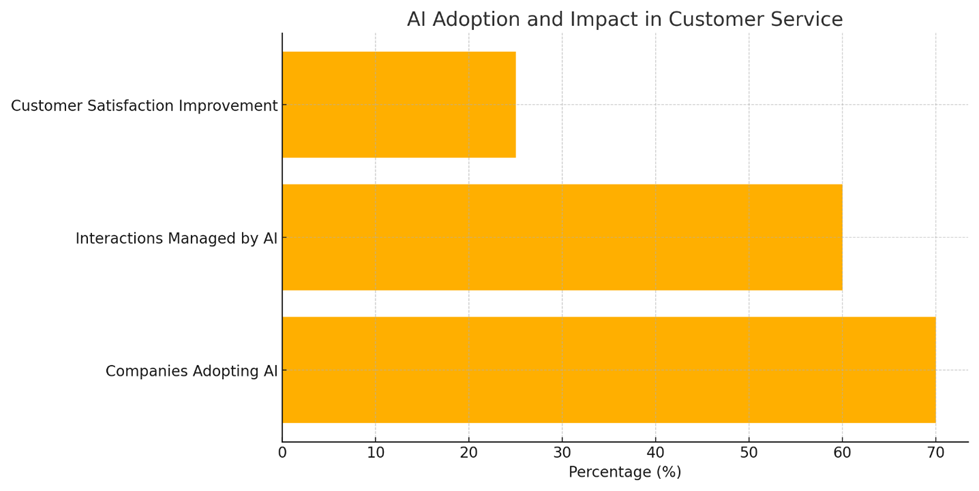
AI-Powered Tools Leading the Way in Customer Service
1. Chatbots and Virtual Assistants
Chatbots are a cornerstone of AI in customer service, providing fast responses to repetitive inquiries and reducing human workload. Their market growth is substantial.
- 55% of customer inquiries are resolved by AI chatbots.
- Companies have reported a 40% reduction in call center costs.
- Businesses have seen up to a 60% improvement in query response time.
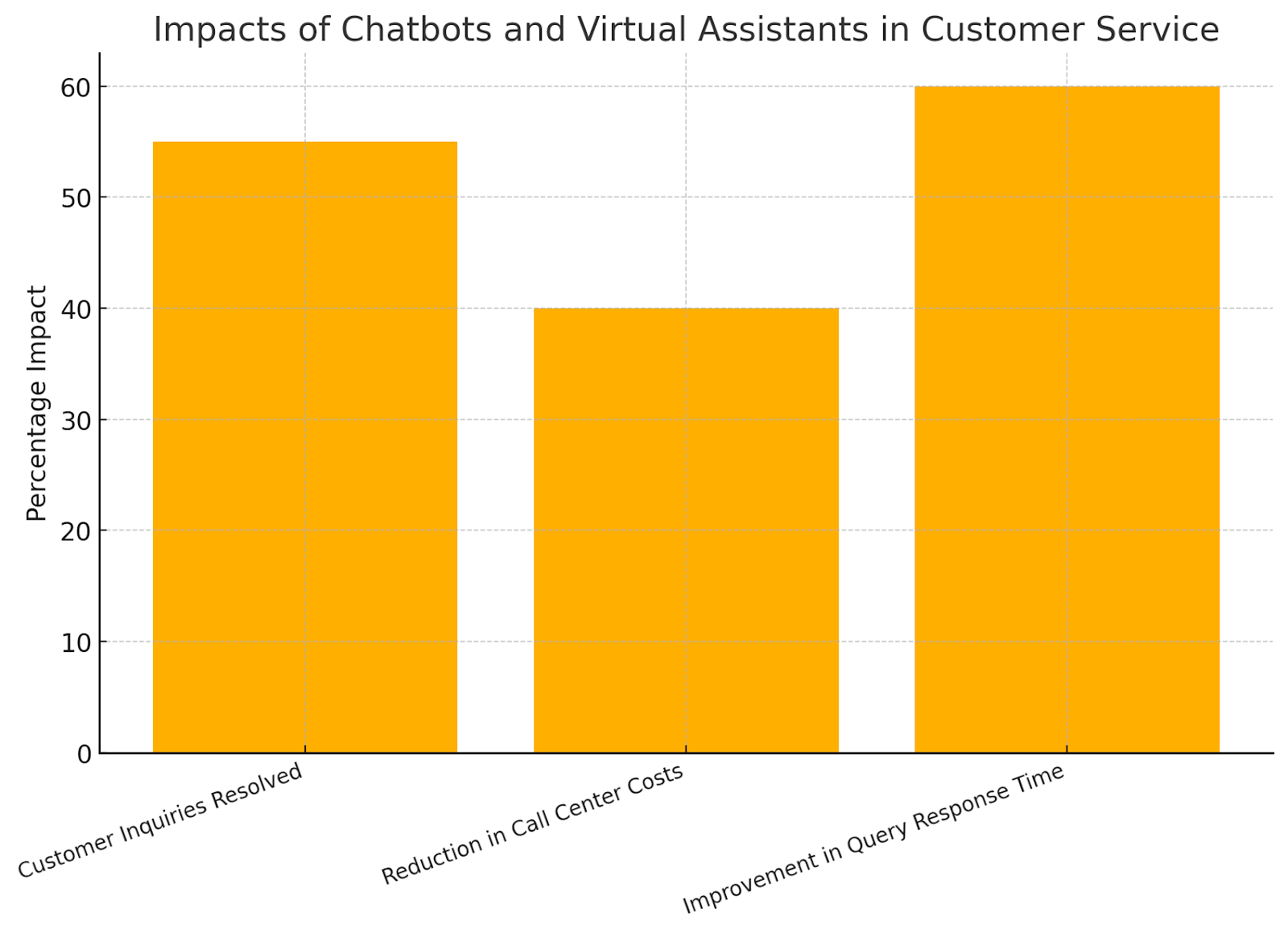
2. Sentiment Analysis
Sentiment analysis detects emotional tones in customer interactions, allowing companies to prioritize cases based on the customer’s mood.
- 50% of customers express increased brand loyalty with prompt resolutions.
- 30% higher customer satisfaction rates reported by companies using sentiment analysis.
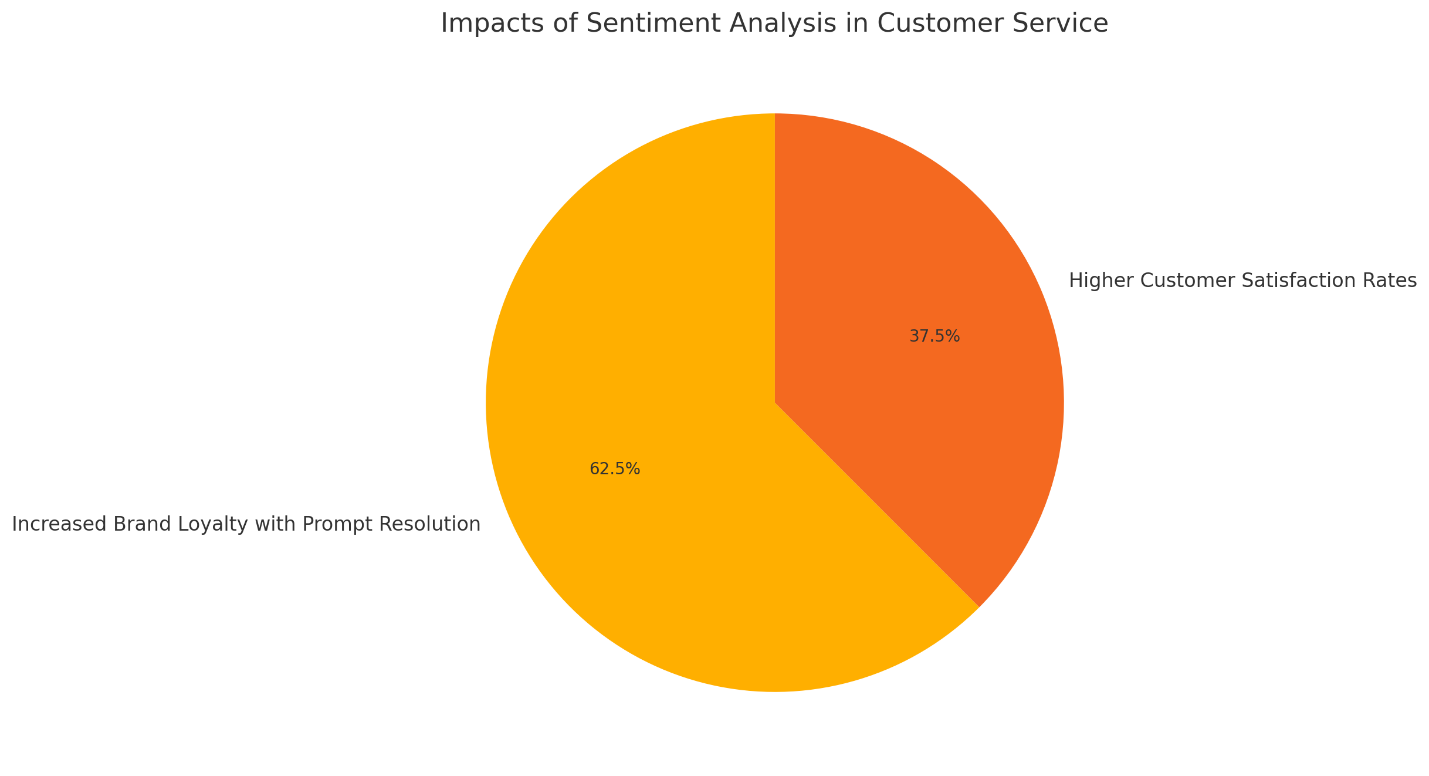
3. Predictive Analytics
AI leverages historical data to predict customer needs, shifting service from reactive to proactive.
- 65% of telecom companies use predictive analytics to anticipate network issues.
- 20% reduction in customer complaints due to early problem detection.
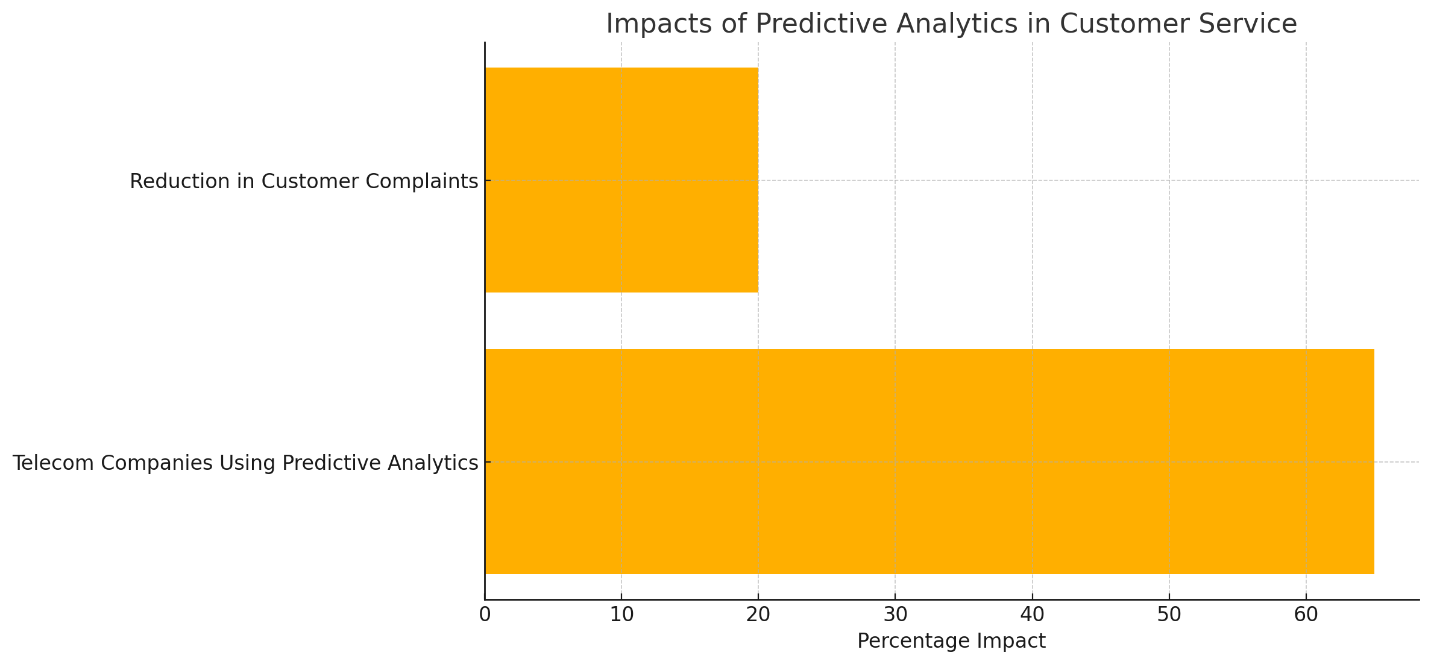
4. AI-Powered Self-Service Options
AI-driven self-service portals empower customers to resolve issues independently, from FAQs to interactive guides.
- 80% of e-commerce customers use self-service options.
- Retailers report a 20% increase in online sales due to quicker customer support.
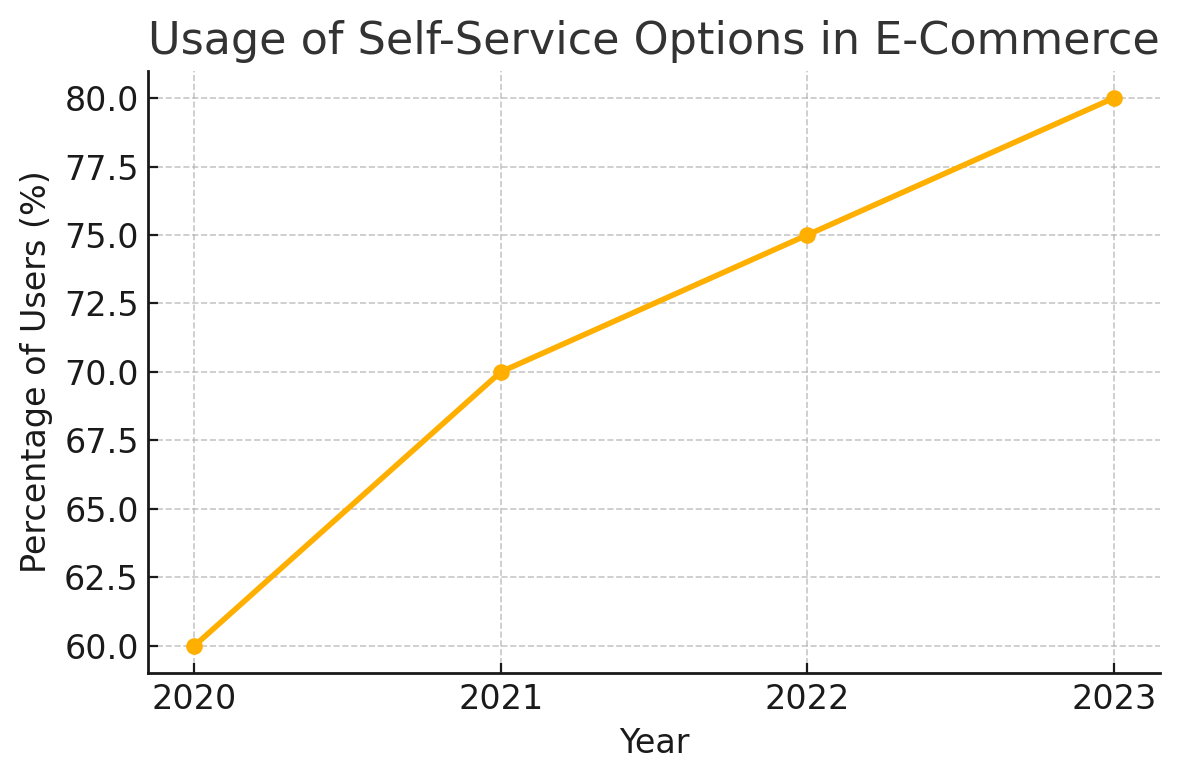
The Benefits of AI in Customer Service
- Boosted Customer Satisfaction: AI provides faster responses, personalized interactions, and allows human agents to handle more complex issues.
- Reduced Operational Costs: Automating repetitive tasks reduces the need for large customer service teams, cutting costs by up to 30%.
- 24/7 Service Availability: AI ensures continuous service, enhancing accessibility for global customers.
- Data-Driven Insights: AI gathers valuable data on customer preferences, enabling businesses to improve services continuously.
- Improved Employee Satisfaction: By offloading routine queries, AI helps reduce employee burnout and increases job satisfaction.
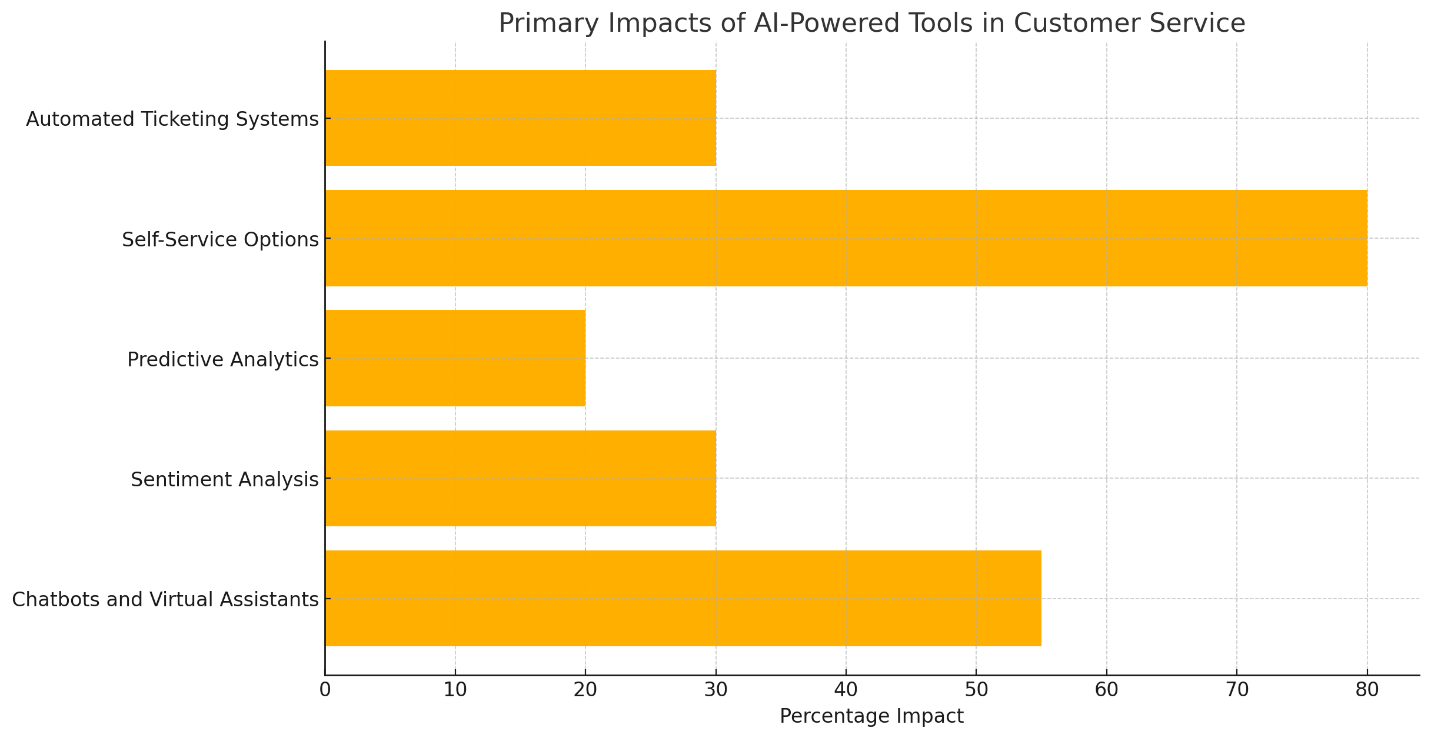
FAQ’s
Can AI fully replace human agents in customer service?
AI complements human agents by managing repetitive tasks, allowing agents to focus on complex, empathy-driven interactions. Many companies find a hybrid model—AI for routine queries and human support for more intricate issues—offers the best customer experience.
How secure is customer data when using AI?
AI systems must comply with stringent data protection regulations like GDPR or CCPA. Businesses should ensure their AI systems have strong security protocols and handle customer data responsibly.
How much does AI improve response time?
AI can reduce response time by up to 60%, as it provides instant answers and directs customers to the right resources without wait times associated with human agents.
What types of companies benefit the most from AI in customer service?
AI benefits various industries, including e-commerce, telecom, financial services, and healthcare, by improving response speed, customer satisfaction, and operational efficiency.
How does AI enhance personalization in customer service?
AI enables personalized customer experiences by analyzing past interactions, preferences, and browsing history. This information allows AI to deliver tailored solutions and recommendations, increasing customer satisfaction and loyalty.
Are AI chatbots capable of understanding complex language?
With advancements in Natural Language Processing (NLP), AI chatbots can understand and respond to more complex language structures, including slang and regional dialects. However, for highly nuanced or emotional contexts, human agents still play a vital role.
What role does AI play in proactive customer service?
Through predictive analytics, AI can identify potential issues before they escalate, such as network outages or product faults, and notify customers. This proactive approach can reduce complaint rates and enhance customer trust in the brand.
Can AI help reduce operational costs in customer service?
Yes, AI significantly reduces operational costs by automating routine inquiries, reducing the need for extensive human teams. According to studies, companies can save up to 30% on customer service costs with AI implementation.
What are the key limitations of AI in customer service?
While AI excels in efficiency and consistency, it may struggle with empathy and understanding complex emotional tones. Also, its effectiveness depends on data quality and system training, requiring continual updates and human oversight for optimal performance.
